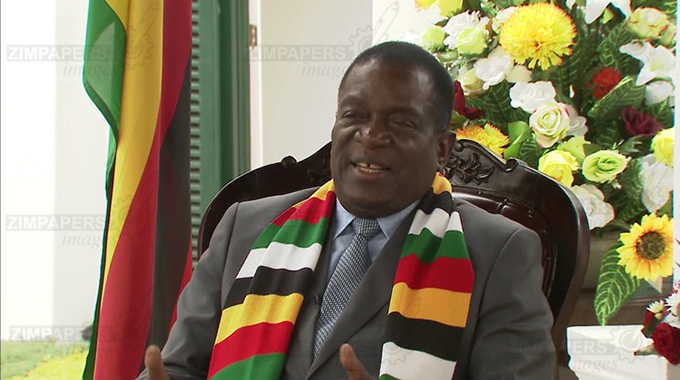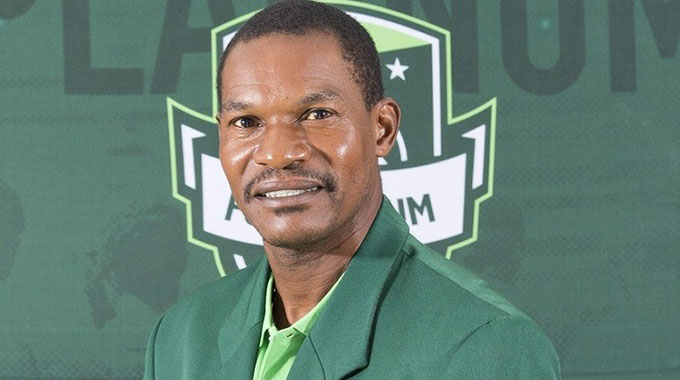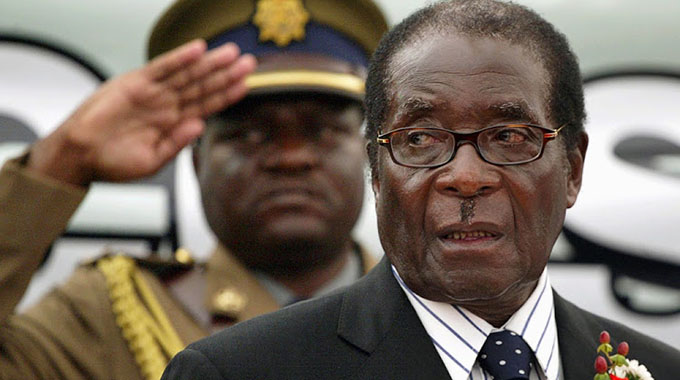ED condemns sanctions at WEF conference

By Victoria Ruzvidzo and Golden Sibanda in CAPETOWN, South Africa
Zimbabwe is facing unique challenges of a malfunctioning economy and a “collapsed” local currency that will need a private-sector led strategy to get it back on track, President Mnangagwa has said.
Addressing delegates to the World Economic Forum on Africa here on Thursday, the President said the situation was compounded by sanctions imposed on the country by the West.
“My country is in a different situation, it has a collapsed economy, none of my colleagues here have a collapsed economy, we have a collapsed currency, none of my colleagues here have a collapsed currency.
“So we are building and reconstructing that collapsed economy. To do so, we have to interrogate what we need to do, what resources are at our disposal to reconstruct our economy under sanctions,” he said.
In this regard, President Mnangagwa said investors needed to play a critical role in reviving the economy and it was incumbent upon Government to create conditions in which investors felt safe to inject capital.
He said corruption would need to be fought head-on by Government and the private sector for the economy to make headway. The judiciary, the President said, was also expected to play ball because “you may have commitment to fight corruption but if the institution of the judiciary does not support you, you don’t succeed”.
“We realise that Government is not in the business of doing business, so it is critically important that we have conversations with the people over there (investors), but we must create conditions in our jurisdictions where they can feel that their capital is safe. We must have the right regulatory institution,” he said.
President Mnangagwa was on a panel of Heads of State and Government to tackle Africa’s challenges while also focusing on country-specific circumstances.
South Africa’s President Cyril Ramaposa, Botswana’s Mokgweetsi Masisi, Namibia’s Hage Geingob and Prime Minister Mandulo Dlamini of Eswatini formed part of the panel.
Seychelles President Danny Fabre, Ethiopia’s Sahlework Zewde, and the United Nations deputy Secretary General Amina Mohammed were also part of the deliberations.
The panel tackled the issue on Africa: Rising Continent in a Fractured World.
President Mnangagwa said Zimbabwe had taken a sectoral approach in resolving its economic challenges.
“With regard to Zimbabwe we have committed ourselves to say in the sub sectors of our economy, what programmes should we do to modernise and mechanise to develop that sub sector of our economy. We have looked at agriculture, which is primary in Zimbabwe. We must make sure that each hectare increases yield. We must continue to grow yield because we cannot grow the land.
“Adoption of technology would be critical for the economy while beneficiation of minerals would be key in growing export earnings. The private sector would have to lead such processes.
“That cannot come from the Government but the people this side (investors). We must continue to have conversations with the private sector to find out what they want us to do for them to feel comfortable.
“Yes, as Government we must look at the issue of human rights, but answer the question of creating a conducive environment for capital to be attracted to our jurisdictions. It is necessary to know the criteria they want to see happening or prevailing in the economy and those are the tasks I think are necessary,” said President Mnangagwa.
His address drew much applause from delegates, many of them potential investors keen to understand the situation in Zimbabwe.
The President reassured delegates that Zimbabwe’s economy would soon be back on its rails.
On Africa’s path to prosperity, President Mnangagwa said it was critical for the continent to first focus on the path it intended take and what it sought to achieve, stressing that inter-Africa trade was critical before the continent looked to the outside world.
He emphasised the need for the continent’s institutions of higher learning to establish innovation hubs. This would ensure the development and adoption of critical technology.
The University of Zimbabwe and other institutions have established innovation hubs to drive technological advancement in Zimbabwe.
Other leaders spoke on the need for inclusive growth, good corporate governance and the introduction of programmes that target the youth and women to foster Africa’s development.







Comments